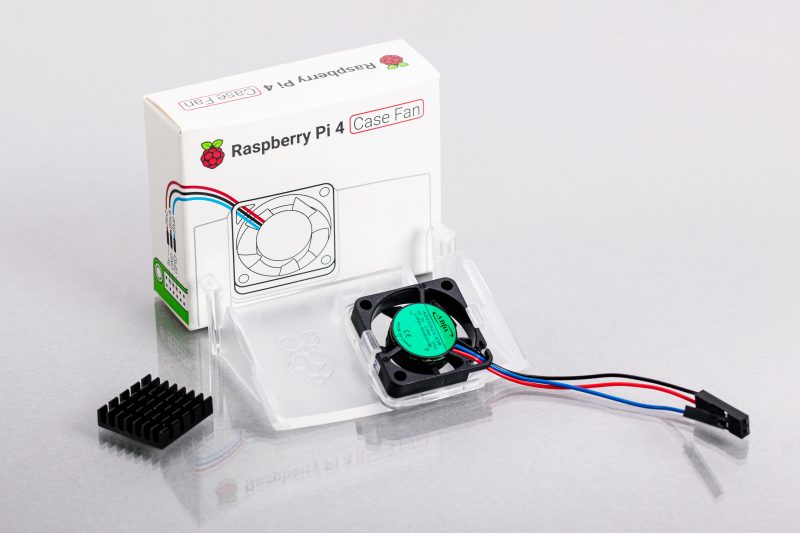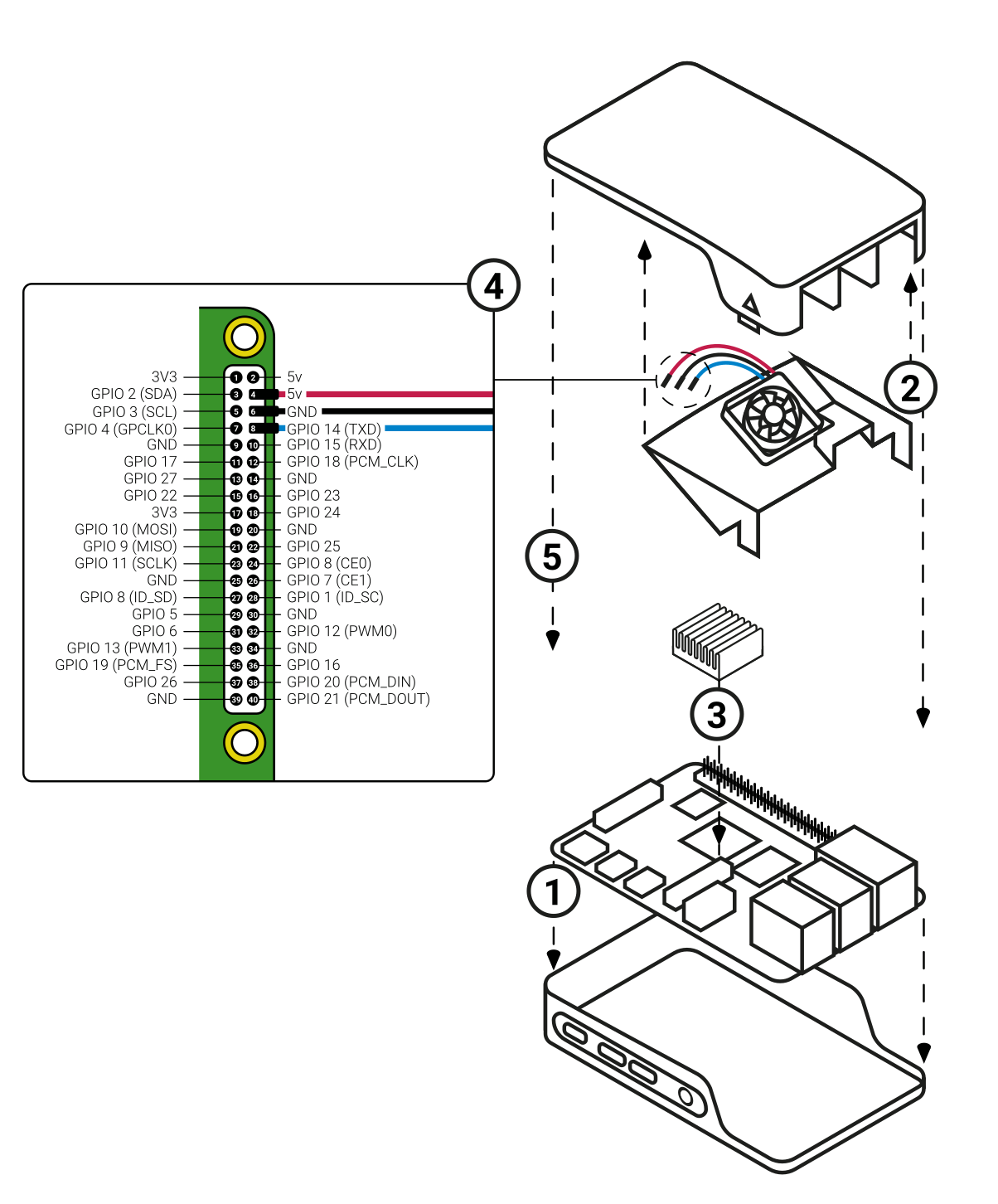Raspberry Pi Releases Fan for Official Pi 4 Case
The $5 fan snaps into the top of the official case.

Raspberry Pi today released its latest official accessory, a $5 case fan kit for the official Pi 4 case. Designed to fit inside the lid of the official case, this fan and accompanying heatsinks are designed to keep your Raspberry Pi 4 cool while housed in the case.
In an announcement blog post, Eben Upton, Chief Executive of Raspberry Pi Trading explains how the Raspberry Pi Arm CPU operates.
"Like all electronic products, Raspberry Pi generates waste heat as it works. Along with most fanless products – like most mobile phones – Raspberry Pi 4 was originally designed to operate in a “sprint-and-recover” mode: if run at maximum performance for an extended period it would heat up, and eventually throttle back to limit its temperature."
The Raspberry Pi 4 Case Fan is designed to clip inside the lid of the official case, with a plastic frame holding the fan at an angle where cool air can flow around the USB / Ethernet ports and be blown directly on to the System on Chip (SoC) which is additionally cooled using the supplied heatsink.
The fan is powered directly from the 5V pin of the GPIO, and control of the fan speed is handled via an update to the Raspberry Pi Configuration tool. This tool can be used to set the temperature at which the fan will turn on, the default is 80 Celsius, just under the 85 Celsius point where the CPU will throttle.

If you already have the official Raspberry Pi 4 case, then this fan kit is an essential upgrade and for $5 it is a no-brainer.
Get Tom's Hardware's best news and in-depth reviews, straight to your inbox.

Les Pounder is an associate editor at Tom's Hardware. He is a creative technologist and for seven years has created projects to educate and inspire minds both young and old. He has worked with the Raspberry Pi Foundation to write and deliver their teacher training program "Picademy".
-
CooliPi Perhaps the heatsink should have its ribs oriented along the airflow, even though Eben Upton considers this a non-issue.Reply